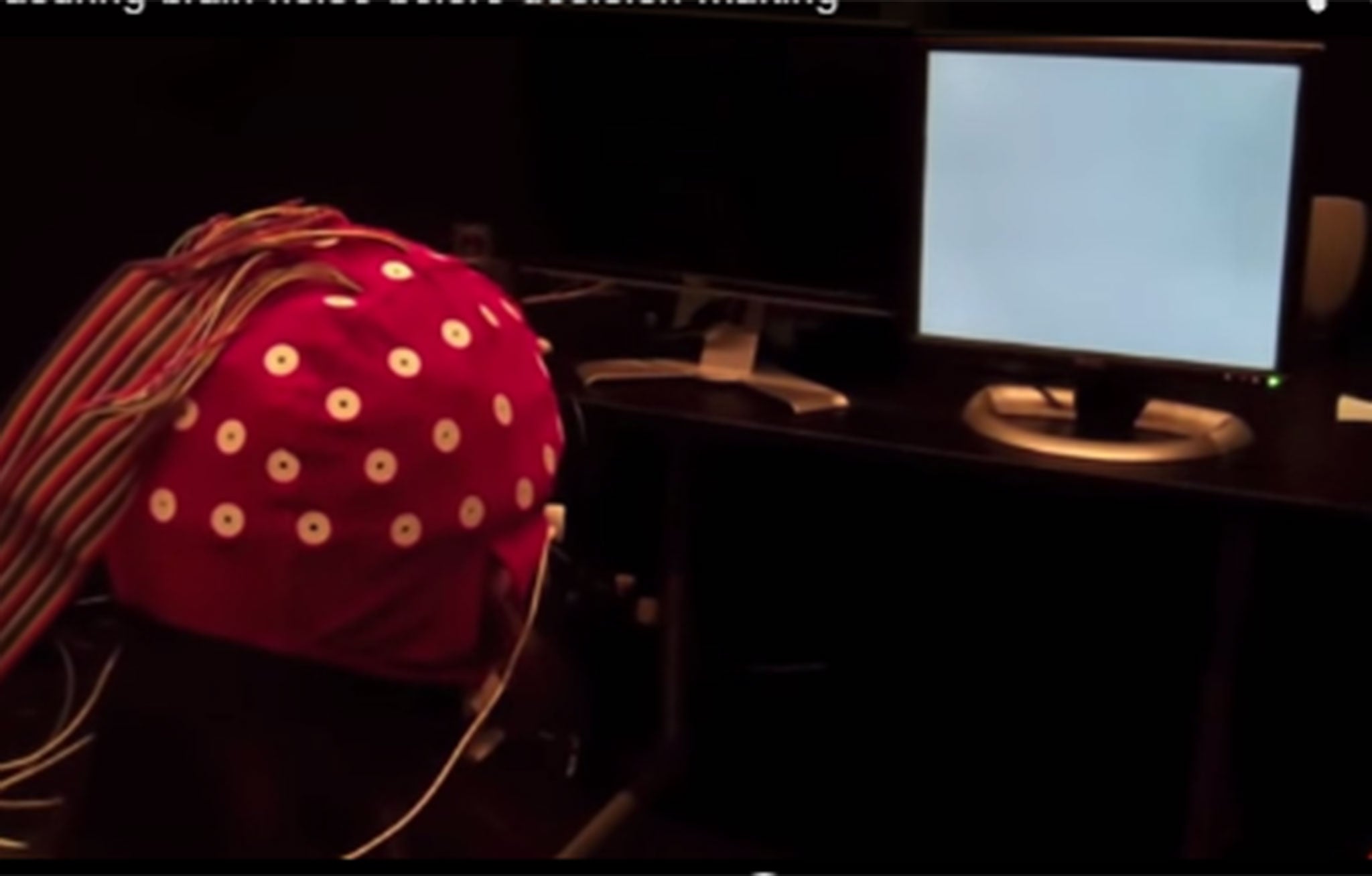Free will could be the result of 'background noise' in the brain, study suggests
Scientists at the University of California, Davis, found that decisions could be predicted based on patterns of brain activity

The concept of free will could be little more than the result of background noise in the brain, according to a recent study.
It has previously been suggested that our perceived ability to make autonomous choices is an illusion – and now scientists from the Center for Mind and Brain at the University of California, Davis, have found that free will may actually be the result of electrical activity in the brain.
According to the research, published in the Journal of Cognitive Neuroscience, decisions could be predicted based on the pattern of brain activity immediately before a choice was made.
Volunteers in the study were asked to sit in front of a screen and focus on its central point while their brains’ electrical activity was recorded. They were then asked to make a decision to look either left or right when a cue symbol appeared on the screen, and then to report their decision.
The cue to look left or right appeared at random intervals, so the volunteers could not consciously or unconsciously prepare for it.
The brain has a normal level of so-called background noise; the researchers found that the pattern of activity in the brain in the seconds before the cue symbol appeared - before the volunteers knew they were going to make a choice - could predict the likely outcome of the decision.
And in an email to Live Science, Bengson said: “[Though] purposeful intentions, desires and goals drive our decisions in a linear cause-and-effect kind of way, our finding shows that our decisions are also influenced by neural noise within any given moment.
“This random firing, or noise, may even be the carrier upon which our consciousness rides, in the same way that radio static is used to carry a radio station.”
This latest experiment is an extension of psychologist Benjamin Libet’s 1970s research into the brain’s electrical activity immediately before a decision.
Libet asked volunteers to press a switch in response to a visual signal - but whereas he had to rely on the participants telling him when they made their choice, Bengson explained that the random nature of the new study meant that "we know people aren't making the decision in advance".
"It inserts a random effect that allows us to be freed from simple cause and effect," Bengson said.
Subscribe to Independent Premium to bookmark this article
Want to bookmark your favourite articles and stories to read or reference later? Start your Independent Premium subscription today.

Join our commenting forum
Join thought-provoking conversations, follow other Independent readers and see their replies